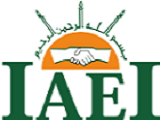Does Islamic Banking Contribute to Economic Growth and Industrial Development in Turkey?
Abstract
Keywords
Full Text:
PDFReferences
Abedifar, P., Hasan, I., & Tarazi, A. (2016). Finance-growth nexus and dual-banking systems: Relative importance of Islamic banks. Journal of Economic Behavior & Organization. 132 (Suplement): 198-215.
Abduh, M., & Chowdhury, N. T. (2012). Does Islamic banking matter for economic growth in Bangladesh. Journal of Islamic Economics, Banking and Finance, 8(3): 104-113.
Abduh, M. & Omar, M. A. (2012). Islamic Banking and Economic Growth: The Indonesian Experience. International Journal of Islamic and Middle Eastern Finance and Management. 5(1): 35-47.
Farahani, Y. G., & Sadr, S. M. H. (2012). Analysis of Islamic bank's financing and economic growth: Case study Iran and Indonesia. Journal of Economic Cooperation & Development, 33(4), 1-24.
Furqani, H., & Mulyany, R. (2009). Islamic banking and economic growth: Empirical evidence from Malaysia. Journal of Economic Cooperation and Development, 30(2): 59-74.
Gheeraert, L., & Weill, L. (2015). Does Islamic banking development favor macroeconomic efficiency? Evidence on the Islamic finance-growth nexus. Economic Modelling, 47: 32-39.
Granger, C. W. (1969). Investigating causal relations by econometric models and cross-spectral methods, Econometrica: Journal of the Econometric Society. 37 (3): 424-438.
Farahani, Y.G., & Dastan, M. (2013). Analysis of Islamic banks' financing and economic growth: a panel cointegration approach. International Journal of Islamic and Middle Eastern Finance and Management: 6(2): 156-172.
Hachicha, N. & Ben Amar, A. (2015). Does Islamic bank financing contribute to economic growth? The Malaysian case. International Journal of Islamic and Middle Eastern Finance and Management, 8(3): 349-368.
Hassan, M. K. & Bashir, A. H. M. (2003). Determinants of Islamic banking profitability. In 10th ERF annual conference, Morocco (pp. 16-18).
Johnson, K. (2013). The Role of Islamic Banking in Economic Growth. Claremnont Colleges, CMC Senior Theses Papers, No: 642, April.
Kassim, S. (2016). Islamic finance and economic growth: The Malaysian experience. Global Finance Journal, 30: 66-76.
Lebdaoui, H., & Wild, J. (2016). Islamic banking presence and economic growth in Southeast Asia. International Journal of Islamic and Middle Eastern Finance and Management, 9(4): 551-569
Mohd. Yusof, R., & Bahlous, M. (2013). Islamic banking and economic growth in GCC & East Asia countries: A panel cointegration analysis. Journal of Islamic Accounting and Business Research, 4(2), 151-172.
Sarwer, M.S., Ramzan, M., & Waqar Ahmad, M. (2013). Does islamic banking system contributes to economy development. Global Journal of Management and Business Research, 13(2): 60-68.
Tabash, M. I., & Dhankar, R. S. (2014a). Islamic Banking and Economic Growth: An Empirical Evidence from Qatar. Journal Of Applied Economics And Business, 2(1), 51-67.
Tabash, M. I., & Dhankar, R. S. (2014b). The flow of Islamic finance and economic growth: An empirical evidence of Middle East. Journal of Finance and Accounting, 2(1), 11-19.
Tabash, M. I., & Dhankar, R. S. (2014c). Islamic Finance and Economic Growth: An Empirical Evidence from United Arab Emirates (UAE). Journal of Emerging Issues in Economics, Finance and Banking, 3(2), 1069-1085.
Tunay, K. B. (2016). Islami Bankacilik ile Ekonomik Büyüme Arasinda Nedensellik Iliskileri/Causality Relations Between Islamic Banking and Economic Growth. Yonetim ve Ekonomi, 23(2), 485.
Wahab, M., Mufti, O., & Murad, M. S. (2016). The Study of Co-integration and Causal Link between Islamic Bank Financing and Economic Growth. Abasyn University Journal of Social Sciences. 9: 134-146.
DOI: http://dx.doi.org/10.24042/febi.v2i1.945
Refbacks
- There are currently no refbacks.
Copyright (c) 2017 IKONOMIKA

This work is licensed under a Creative Commons Attribution-NonCommercial-ShareAlike 4.0 International License.
Ikonomika : Jurnal Ekonomi dan Bisnis Islam is a Journal of Islamic Economics and Business, Published by the Faculty of Islamic Economics and Business at UIN Raden Intan Lampung Indonesia. This work is licensed under a Creative Commons Attribution-ShareAlike 4.0 International License.






11.png)


